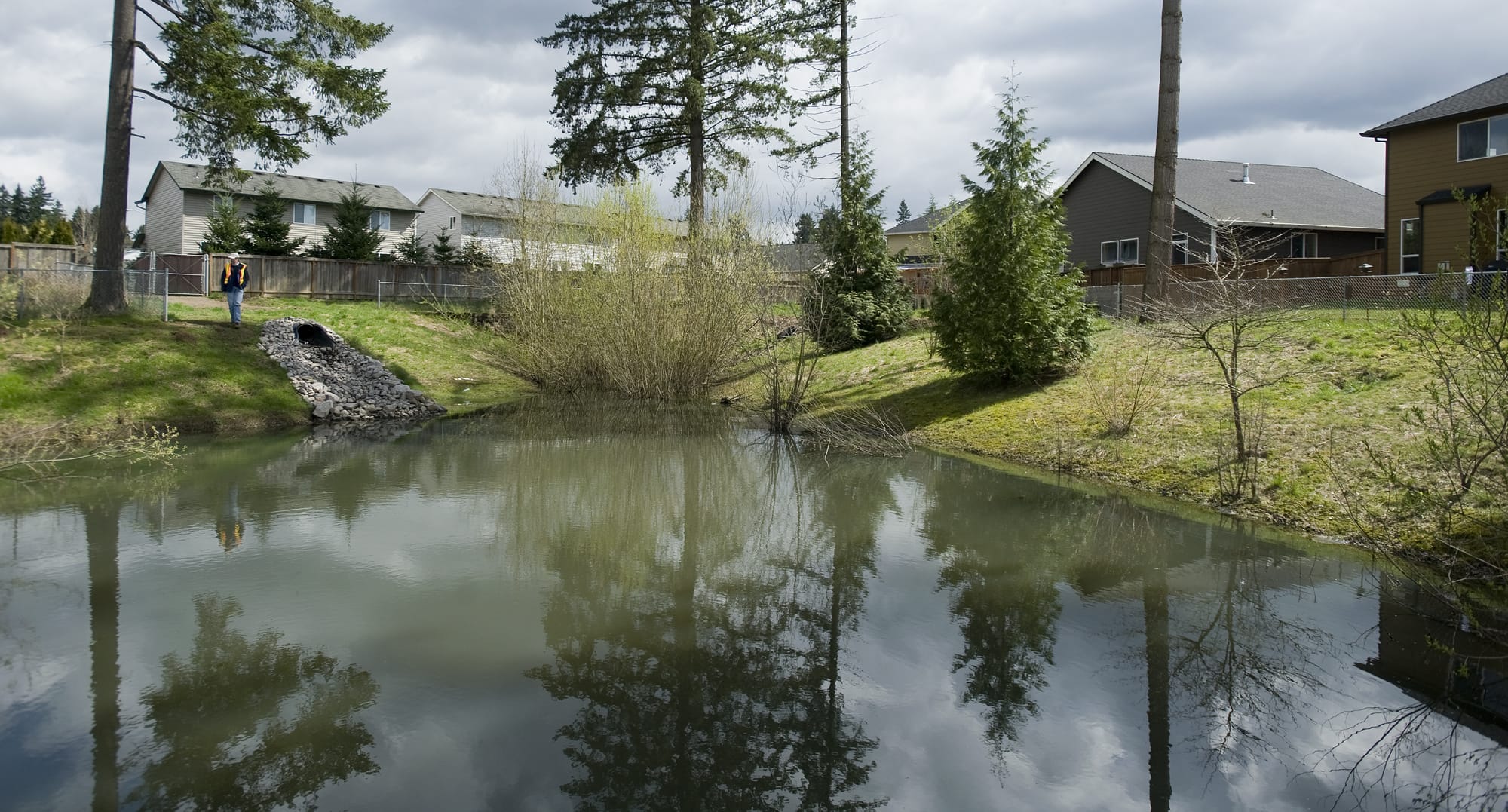Stormwater fees, per year
- Washougal: $165
- Camas: $116.52
- Vancouver: $93.96
- Battle Ground: $90
- Ridgefield: $72
- CLARK COUNTY: $33
- Portland: $298.56
Settlement breakdown
o In January, the county settled a lawsuit brought by the Rosemere Neighborhood Association, Columbia Riverkeeper and Northwest Environmental Defense Center. The county agreed to pay about $3.6 million for violating the Clean Water Act.
o Attorneys fees: $600,000.
o Six-year settlement payout: $3 million.
The last time Clark County residents saw their stormwater rates increase, Bush v. Gore was before the U.S. Supreme Court and Vladimir Putin was becoming Russia’s president for the first time.
It was the year 2000, memorable, in part, for Y2K’s passing with the faintest blip of real-world repercussions. The county’s stormwater rate, however, has had staying power.
Stormwater fees, per year
- Washougal: $165
- Camas: $116.52
- Vancouver: $93.96
- Battle Ground: $90
- Ridgefield: $72
- CLARK COUNTY: $33
- Portland: $298.56
Settlement breakdown
o In January, the county settled a lawsuit brought by the Rosemere Neighborhood Association, Columbia Riverkeeper and Northwest Environmental Defense Center. The county agreed to pay about $3.6 million for violating the Clean Water Act.
o Attorneys fees: $600,000.
o Six-year settlement payout: $3 million.
For 14 years, the fee has been $33 a year for single-family residences. Attempts to increase it have been fruitless. Don Benton, director of environmental services, is now proposing an increase, which county commissioners will discuss this week, along with other fees that would pay for the clean water program.
The Benton fee increase for residences would break down like this: The rate for people living within the urban growth area would increase by $14, to $47 a year. Rates for rural homeowners would increase by $2, to $35.
Even with the increases, county residents would pay the lowest stormwater rates of any local jurisdiction.
Currently, county residents pay less than half what people in Ridgefield pay. In Vancouver, the fee is nearly three times as high as the county’s. And Washougal ranks at the top of the heap countywide, with an annual fee that totals $165.
Trevor Evers, strategic planning director for Washougal, said all jurisdictions are grappling with meeting the Clean Water Act’s mandates. In Washougal, the to-do list to meet the requirements is 30 bullet points long.
Fees are increasing, he said, because those bullet points will require work.
“We have also constructed multiple capital improvements to address stormwater issues within the city and are scheduled to continue enhancing infrastructure in accordance with our capital improvement plan for the stormwater utility over the next several years,” he said.
Many of the requirements come from the state, such as putting in place an ongoing program to trace and eliminate illicit discharges into the stormwater system.
Bryan Cast, civil engineer for Ridgefield, said most jurisdictions have difficulty maintaining facilities. The county has additional state requirements it has to meet, because of its population, and he doesn’t understand how the county can do that using a fee established in 2000.
“I’m not sure how they’re running their program on that fee,” he said.
Benton has agreed, saying things need to change, although he has lamented the idea of raising rates. In addition to the residential fee increases, one of the more controversial measures proposed is a “polluter fee” assessed to newspapers. The Department of Environmental Services says the polluter fees, a temporary surcharge, a system development fee and new residential rates would be enough to cover the $6.8 million annual operational costs and the $3.6 million settlement the county owes.
Because of inflation, the true purchasing power of the $33 has eroded to $24. The county would have to raise the fee to $45.43 to have the same purchasing power it did in 2000. Furthermore, the county has 89 percent more stormwater facilities than it did in 2000.
“These fees are well under the norms,” said Brian Peck, a member of the county’s clean water commission. “We are still paying a very low rate as a whole. The increases are fair.”
New permits mean new financial obligations — the kind Washougal is shelling out for. The county calls them unfunded mandates because, while the fixes are required to meet the Clean Water Act and Phase I National Pollutant Discharge Elimination System permit for Western Washington issued by the state Department of Ecology, it’s up to the local jurisdiction to pay for them. They include basin planning, which is expected to cost roughly $500,000 a year, and outfall monitoring, at $200,000.
The county predicts that without the extra fees in place, it will face a $2 million shortfall. The Department of Environmental Services has said there are a number of options the county could take. Ultimately, county commissioners will make the decision about how to mix and match fees. A public hearing on the matter is scheduled for 10 a.m. Tuesday.



